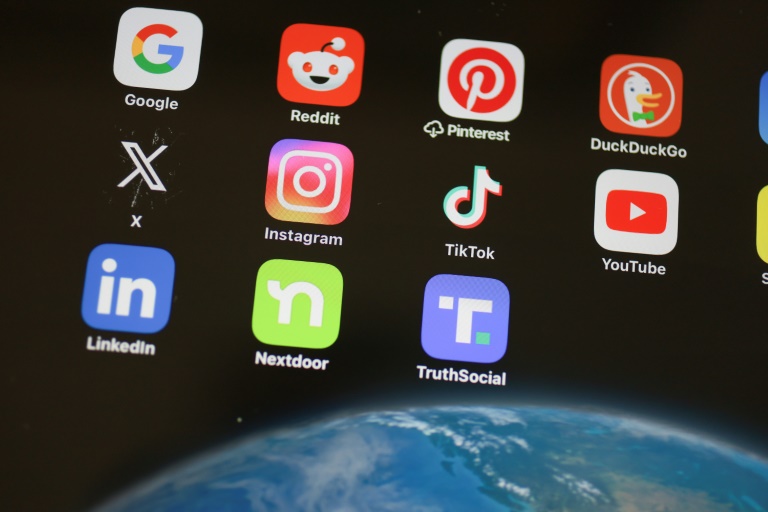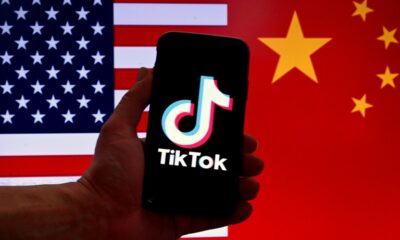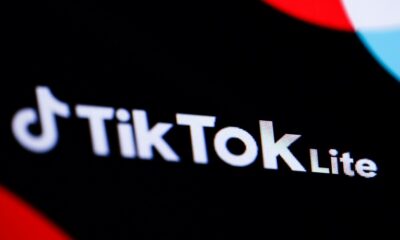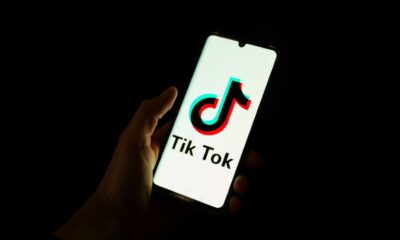The EU on Thursday wielded a powerful new digital law to press TikTok and seven other platforms on the AI risks for upcoming elections in the 27-nation bloc, including from deepfakes.
In a flurry of actions taken under the Digital Services Act (DSA), the European Commission quizzed TikTok, Facebook, Instagram, X, Google, YouTube, Snapchat and Bing on what they were doing to counter those risks.
The commission also announced a formal probe against Chinese internet retailer AliExpress for multiple suspected breaches of the DSA, among them the sale of illegal medicines and dietary supplements, and not preventing minors from accessing pornography.
Additionally, Brussels asked Microsoft’s professional social network LinkedIn about how users’ personal information is being used for targeting advertising.
“DSA now running at full speed” after coming into force last year, the European Union’s top digital enforcer, commissioner Thierry Breton, posted on social media apps Bluesky and X.
“Enforcement teams (are) fully mobilised,” he said.
On the information request to the eight platforms on steps to mitigate risks from generative AI, the commission said in a statement it was looking at issues “such as so-called ‘hallucinations’ where AI provides false information, the viral dissemination of deepfakes, as well as the automated manipulation of services that can mislead voters”.
The formal requests made to those platforms, as well as the request to LinkedIn, do not presuppose further action being taken. That would depend on the information gleaned.
The probe against AliExpress, on the other hand, gives Brussels the power to dig deep into its internal documents and processes and to take testimony.
Such level of action against a company, depending on the outcome, potentially exposes it to DSA fines running up to six percent of a platform’s global turnover, or even a ban in egregious cases.
– EU reins in Big Tech –
European Commission officials said the focus on generative AI and how major platforms were handling it stemmed from concerns on how it might be used to influence voting in June EU elections.
“We want to equip ourselves and we want to equip the platforms and alert the platforms to really be best prepared for all sorts of incidents that might come our way with regard to the upcoming elections, in particular, of course, the EP (European Parliament) election,” one official told journalists.
The announcement looking at the AI risk came a day after the European Parliament voted to adopt a major new law seeking to curb abuses of artificial intelligence. That legislation will take effect once formally signed off on by EU member countries.
Overall, Brussels’ legal arsenal to impose order in the digital sphere has been massively beefed up in recent months with the DSA and a sister Digital Markets Act, and the AI Act, with the goal of better protecting European citizens and businesses while still fostering innovation.
The combined weight of those pieces of legislation are likely to serve as guideposts for other countries to follow, especially in the West.
The United States, which has an executive order on AI safety standards, is potentially headed towards an outright ban on TikTok if it stays under the ownership of Chinese company ByteDance.
US lawmakers on Wednesday overwhelmingly backed a bill to ban TikTok unless ByteDance divested itself of the app within six months. The bill still needs to pass the upper house of the US Congress.
The European Commission official said of Brussels’ actions including TikTok that “there is no kind of… China bashing” taking place at EU level, and that all online platforms were being given “equal treatment” under the DSA.
They added that Thursday’s announcements are “certainly not the last kind of action” and “there will be more to come because we’re constantly working on the material that we get”.

 Business4 months ago
Business4 months ago
 Business5 months ago
Business5 months ago
 Events3 months ago
Events3 months ago
 People4 months ago
People4 months ago
 Events6 months ago
Events6 months ago
















